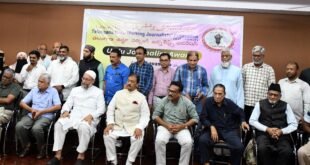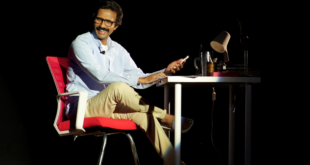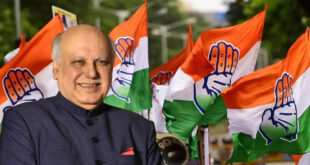The 2020 survey carried out by Carnegie Endowment, tries to find and analyse the reasons for Modi’s popularity in the United States.
Indian-origin American citizens now comprise the second-largest immigrant group in the USA. Over the years with increasing political influence and playing an active role in the US internal politics, this group also tends to be actively involved in the politics of the country of their origin. Since the turn of the twenty-first century the burgeoning U.S.-India partnership, which has enjoyed steady progress and has touched on areas as diverse as climate change, defence, and space exploration. Thus, an analysis of their role and attitudes has an important influence on both the American and Indian policy makers besides the US-India relations.
Outreach to the far-flung Indian diaspora has been a signature element of Indian PM Narendra Modi since coming to power in 2014. Modi has focussed particularly on the Indian diaspora in the USA, a considerable percentage of whom is from his home state Gujarat, and has held two massive rallies in 2014 and 2019 on the US soil. These gatherings signified the particular importance that the Modi government has placed on the Indian diaspora as a force multiplier of India’s foreign policy. The Indian American immigrant group has become the second largest in the United States and as per current count stands at more than 4 million.
These high-octane gatherings, however, naturally lead to a series of questions: How do Indians in America regard India, and how do they remain connected to developments there? What are their attitudes toward Indian politics and changes underway in their ancestral homeland? And what role, if any, do they envision for the United States in engaging with India?
To analyse these and other related issues Carnegie Endowment of the US, commissioned a survey on How Indian Americans Feel about India and Prime Minister Modi. The online survey was carried out by Devesh Kapur, Professor of South Asian Studies and director of Asia Programs at the Johns Hopkins School of Advanced International Studies; Milan Vaishnav, a senior fellow and director of the South Asia Program at the Carnegie Endowment for International Peace, and Sumitra Badrinathan, a PhD student in political science at the University of Pennsylvania.
Survey Takeaways
The survey lists out four major takeaways from the analysis. First, Modi’s popularity across most of the major demographic groups is striking. Second, older Indian Americans tend to be more favourably disposed toward Modi. His approval is highest among those above the age of fifty (55 per cent), but it is nearly as high among thirty- to forty-nine-year-olds (53 per cent). However, there is no clear gender disparity: men and women approve of Modi in nearly equal proportions (49 and 50 per cent, respectively).
Third, Modi fares better among non-U.S. citizens, naturalised citizens, and immigrants who are more recent arrivals. Fifty-three per cent of non-citizens and 52 per cent of naturalised Indian Americans approve of Modi compared to 44 per cent of U.S.-born citizens. Interestingly, Modi’s approval is lowest among Indian Americans who have been in the country the longest. For respondents who have been in the United States for more than twenty-six years, Modi’s approval stands at 46 per cent.
Fourth, there are also striking patterns when analysing the data by occupation and region of origin. Indian Americans employed as engineers (including architects and computer scientists), are more supportive of Modi than non-engineers: 61 per cent of engineers approve of Modi compared to 48 per cent of non-engineers.
In terms of region of origin, the analysis used a respondent’s ‘mother tongue’ as a proxy. Modi’s support is greatest among those who speak Hindi or the languages of Western India (Gujarati and Marathi) at 66 and 65 per cent, respectively. Conversely, it is lowest among those from Eastern India (speaking languages such as Assamese, Bengali, or Odia) at 38 per cent and those from primarily English-speaking families at 34 per cent.
The relationship between duration of stay in the United States and support for Modi could be either due to informational or selection effects. More recent arrivals are likely to be more plugged into the Indian political scene. At the same time, those who came to the United States earlier likely hailed from an Indian middle class forged in a polity dominated by the Congress Party, while recent migrants arrived during a time of BJP political dominance.
Major findings
On foreign policy, Indian Americans endorse efforts to deepen ties between Washington and New Delhi and share broadly negative views of China. However, they are more split on how far the two countries should go in confronting China. This study is the second in a series on the social, political, and foreign policy attitudes of Indian Americans. The major findings are briefly summarised below.
Indian Americans are divided about India’s current trajectory. Respondents are nearly evenly split as to whether India is currently on the right track or headed down the wrong track. Indian Americans are especially concerned about the challenges which the government corruption and slowing economic growth pose to India’s future.
The Bharatiya Janata Party (BJP) is the most popular political party among Indian Americans. One-third of respondents favour the ruling BJP while just 12 per cent identify with the Congress Party.
Indian Americans hold broadly favourable views of Modi. Nearly half of all Indian Americans approve of Modi’s performance as prime minister. This support is greatest among Republicans, Hindus, engineering professionals, those not born in the United States, and those who hail from North and West India.
Indian Americans’ policy views are more liberal on issues affecting the United States and more conservative on issues affecting India. Regarding contentious issues such as the equal protection for religious minorities, immigration, and affirmative action, Indian Americans uphold relatively more conservative views of Indian policies than of US policies.
Indian Americans heavily rely on online sources for news about India, though they do not view it as particularly trustworthy relative to traditional news sources.
Indian Americans are broadly supportive of the US-India relationship. A plurality of Indian Americans believes that current levels of US support for India are adequate, while a large majority hold unfavourable opinions of China.
However, Indian Americans are divided about US efforts to strengthen India’s military as a check against China. Foreign-born Indian Americans and those who identify as Republicans are more supportive of US efforts to support India militarily than their US-born and Democratic counterparts.
The parallels between a Modi-supporter be it in India or in the USA, are very uncanny and that’s what provides foot soldiers to his politics, beside the well-educated and settled individual.
These stark realities are a definite pointer to the trajectory, which the Indian politics seems to have taken during the last 15-20 or so years. With BJP rising to be a regular actor on the national political scene, it has been able to consolidate its grip over power through a decisive and charismatic campaign led by PM Modi, and there seems to be no alternative to its brand of majoritarian politics to be replaced soon, as most of the significant political players in India have been swept to the margins, the Survey concludes.
—–Ends
 Gawah (The Witness) – Hyderabad India Fearless By Birth, Pristine by Choice – First National Urdu Weekly From South India – Latest News, Breaking News, Special Stories, Interviews, Islamic, World, India, National News
Gawah (The Witness) – Hyderabad India Fearless By Birth, Pristine by Choice – First National Urdu Weekly From South India – Latest News, Breaking News, Special Stories, Interviews, Islamic, World, India, National News



